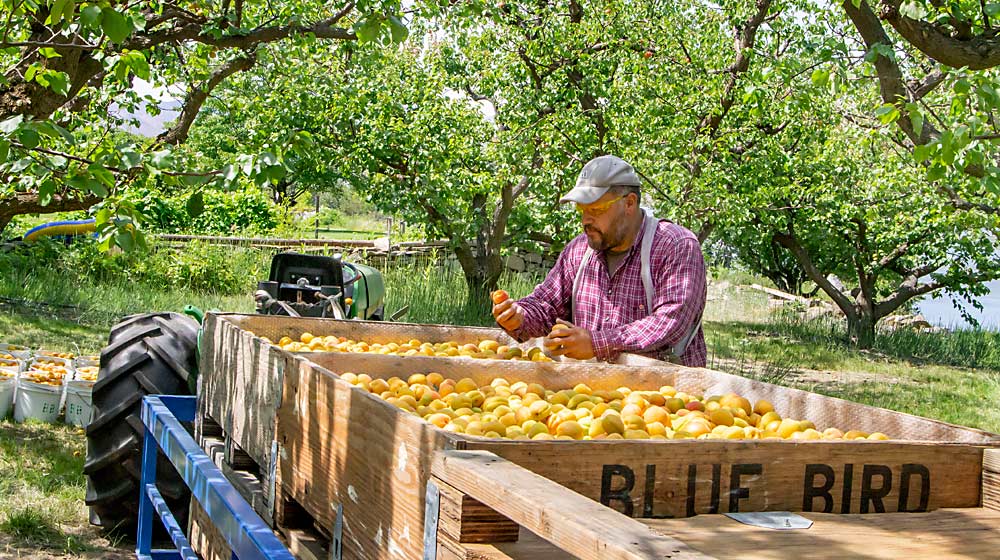
On the boulder-strewn bank of the Columbia River, Miguel Madrigal has managed a small stone fruit orchard for decades. But he and his 30-year-old apricot trees are adapting with the times.
“I leave them on the tree two extra weeks, when it’s too ripe you can barely even touch it without it falling apart,” he said. That’s when he picks fruit for a new type of customer: distilleries that make apricot brandy. They want as much sweetness as possible and don’t mind fruit so soft it would never make it down a packing line.
Flexibility is proving essential for the shrinking stone fruit industry, even as new commercial customers are stepping forward.
Fewer apricots are heading down Washington packing lines every year. Production in 2020 was just 2,200 tons, after a freeze cut back the expected crop by about half, a move that significantly boosted prices last season. Acreage is down to 860, from 1,200 just five years ago, according to U.S. Department of Agriculture data.
Amid this decline, Patrick Reilly decided to take a chance on a dream of owning an orchard. In 2019, he purchased the 10-acre orchard Madrigal manages from friends who wanted to retire but didn’t want to see the waterfront property developed.
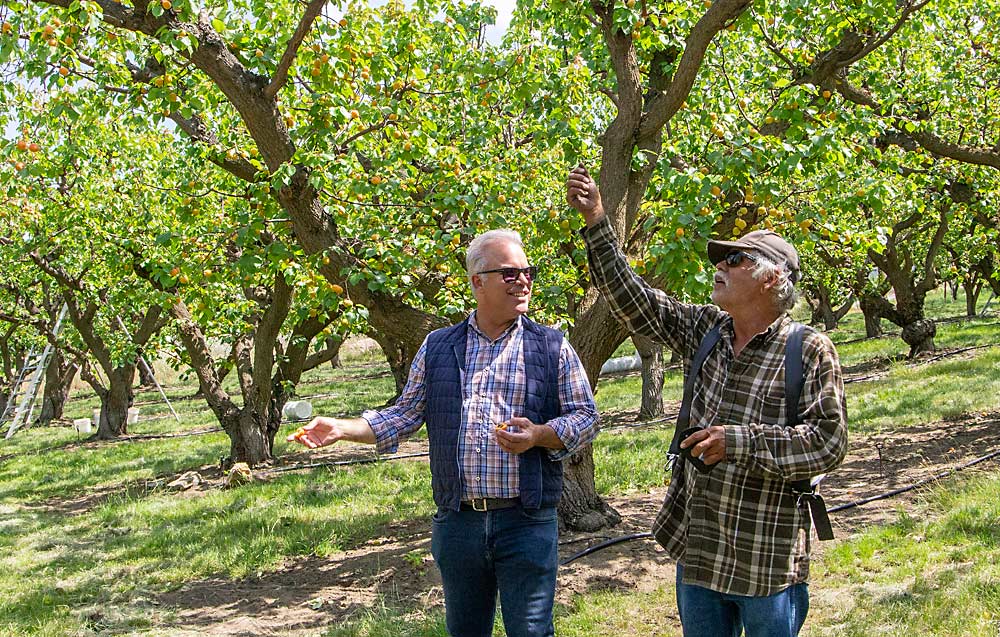
“It’s just a really special place,” Reilly said of the orchard, located to the east of Wenatchee, where the river bends in such a way that it blocks the winds and protects the waterfront orchard. The trees grow around huge boulders that couldn’t be dislodged by the dynamite Madrigal used in the 1990s to clear the site for planting.
When Reilly bought the orchard, he learned that the traditional wholesale market was shrinking. So, he set about finding new niche markets that could take advantage of what apricots had to offer without the disadvantages of packing and shipping the fragile fruit. Now, he said, having multiple channels for the fruit — distilleries, food processing, fruit markets and wholesale packing — sets the orchard on a more profitable path in the face of the variability that comes with farming a niche crop.
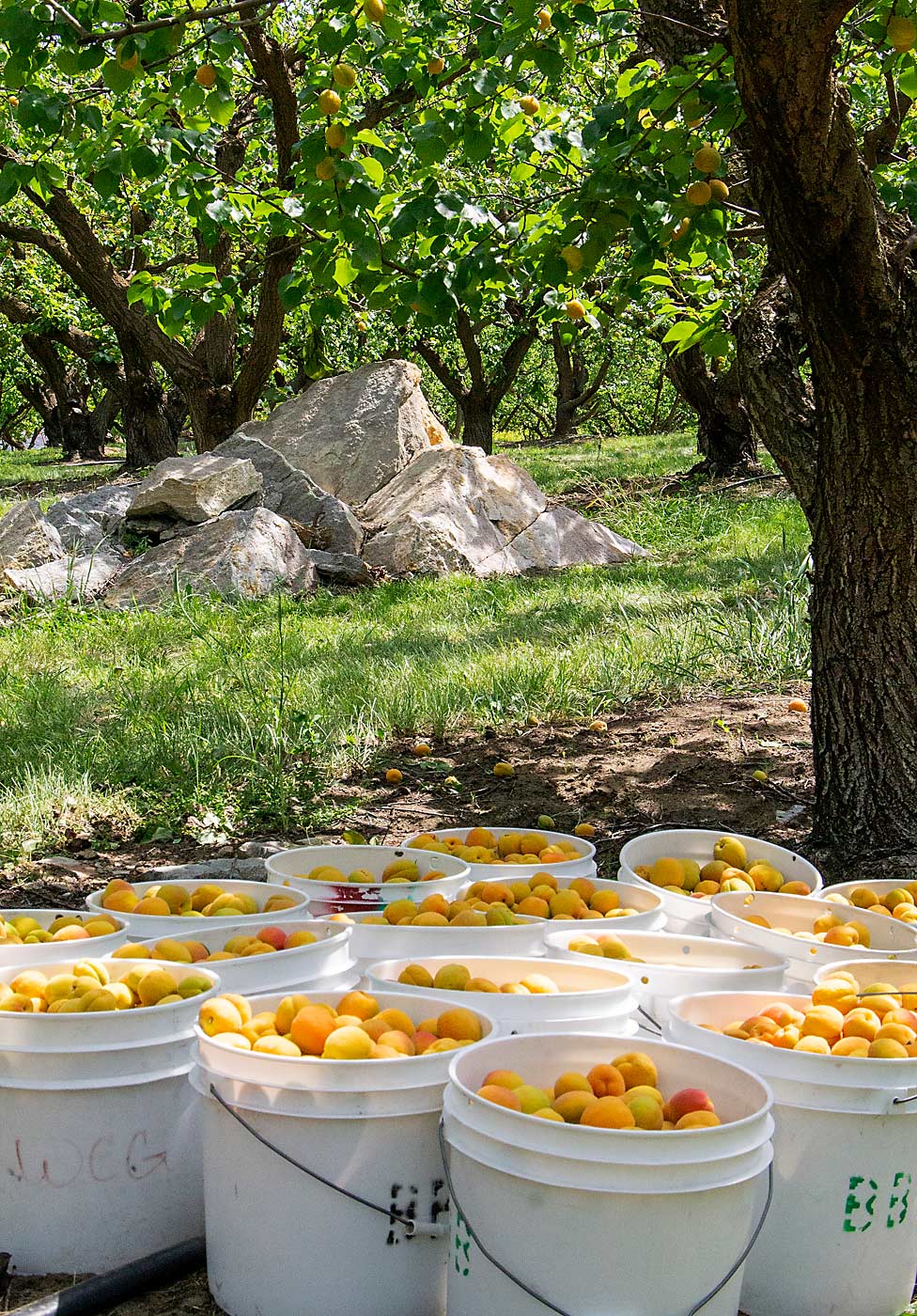
“I’m committed to apricot production, especially with these new markets,” Reilly said. “Their focus is really on the quality and flavor profile, versus the fruit markets which want fruit that look good.”
He first connected with a bakery that prefers more tart fruit, especially the Tomcots, and the aforementioned distillery that wants meltingly ripe fruit. Both liked the idea of sourcing organic fruit, so he and Madrigal began to research organic management and transition the orchard.
“For them, organic is part of their trust in the product,” Reilly said.
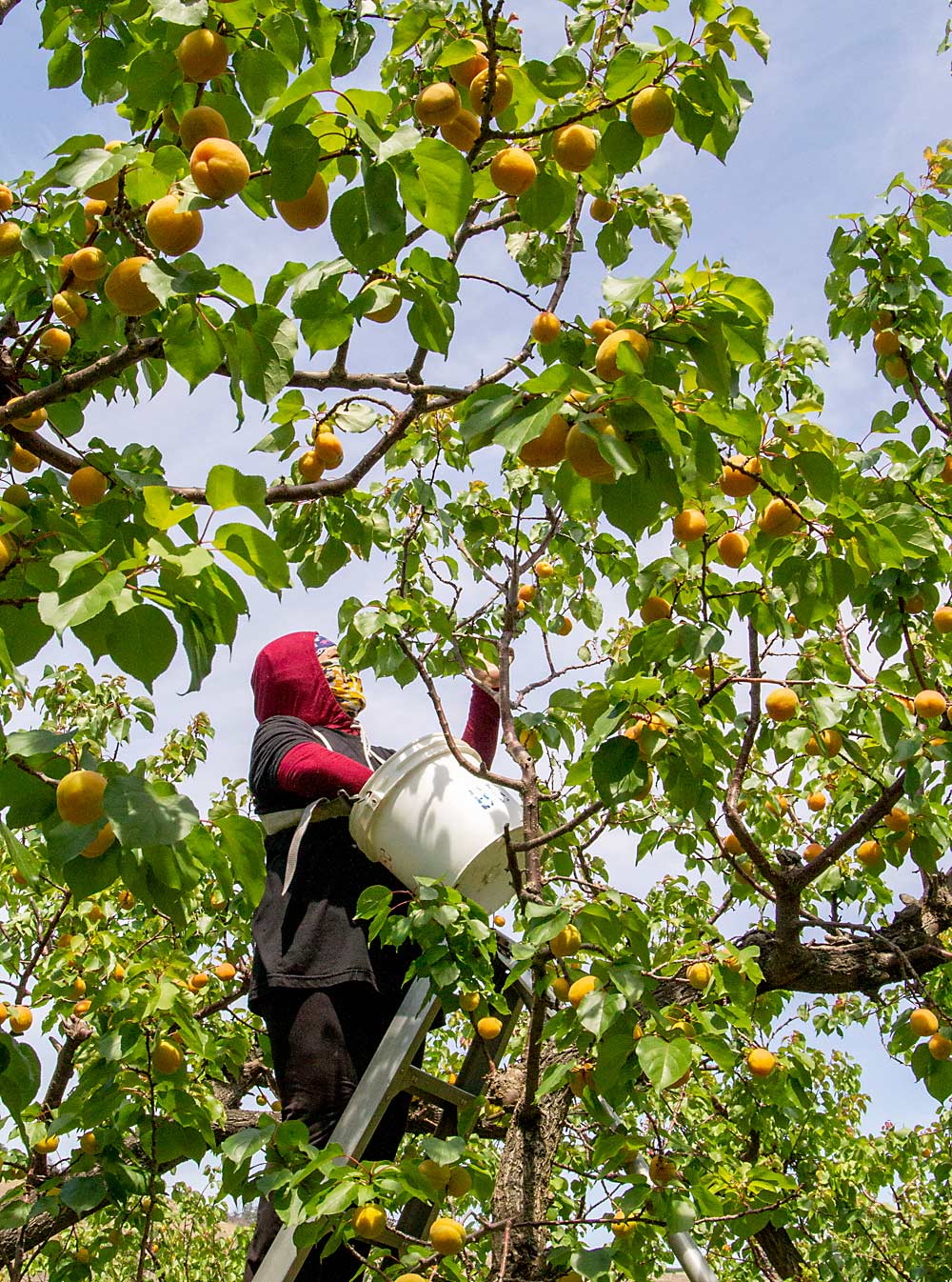
For Madrigal, that has meant switching to organic fertilizer, which has had a bit of a learning curve, he said. Otherwise, he said it’s been a relatively smooth transition; Madrigal lives on-site and does most of the apricot and cherry orchard work himself, so it’s easy enough to stay ahead of the pest and disease pressures of organic production.
“It’s a 10-acre place, so there’s always something to do,” Madrigal said. His wife, Graciella, and son, Victor, handled harvest while he gave Good Fruit Grower a tour in 2020.
For the 2021 season, Reilly said he’s working with three distillery customers and has partnered with a custom food production team to make dried, chocolate-covered apricots. He also sends fruit to the Blue Bird packing house in Wenatchee and to some local fruit markets. How much fruit goes to each market depends on prices and fruit quality, he said. Last year, because of the short crop, the warehouse offered better than average prices, so he sent about 75 percent of the harvest there.
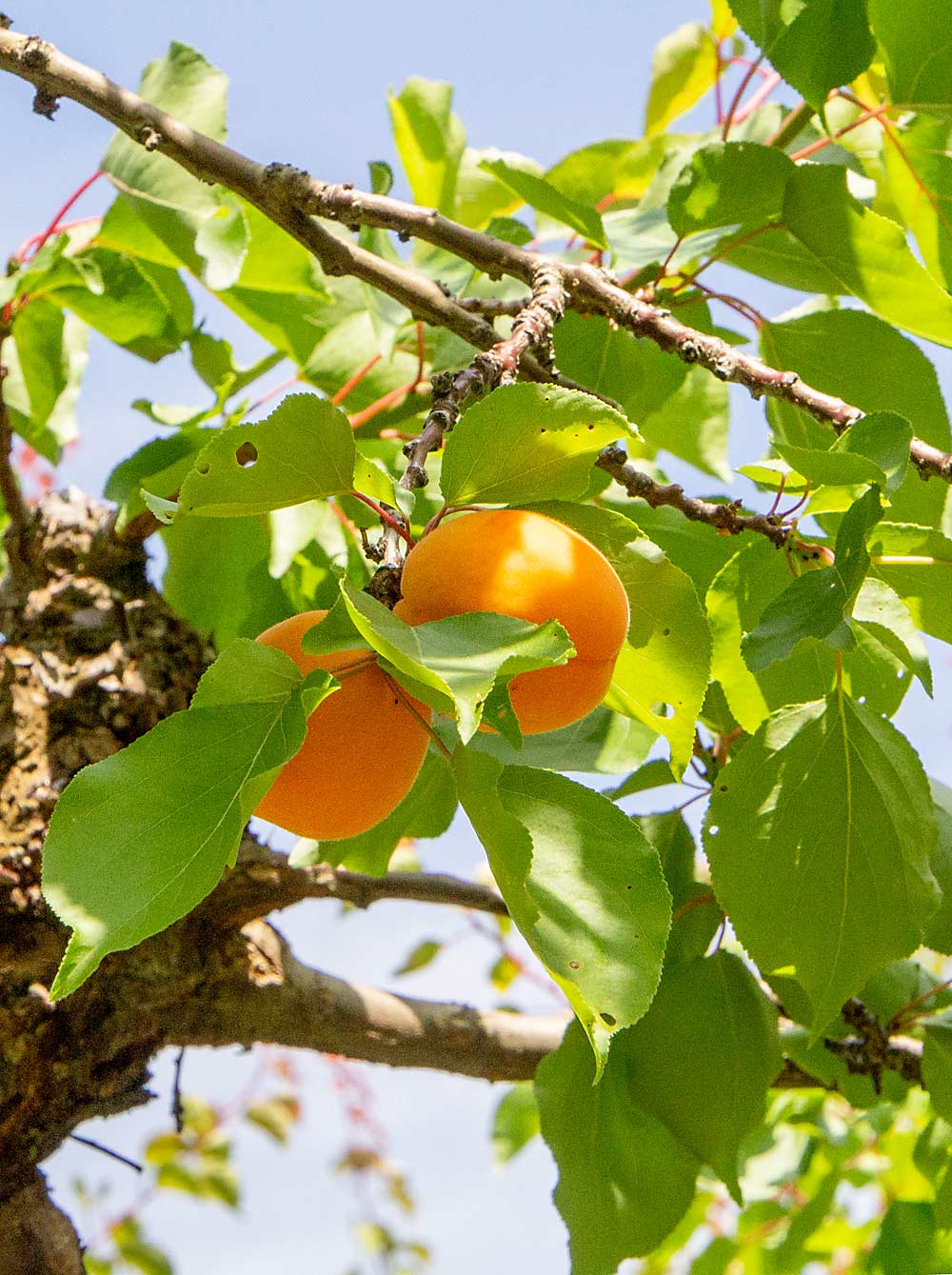
“It’s so important to have all these channels to hedge our bets,” Reilly said. “Both the food production and distilleries create options for fruit that’s smaller or if you get wind and some limb rub. … They need the flavor profile, but they are not sensitive to size, so it takes the risk out of thinning.”
Juggling multiple markets is a lot of work for a small farm, but it protects them from market fluctuations, too, Reilly said. So far, it’s working out so well that he’s planning to plant more apricots on the site.
—by Kate Prengaman



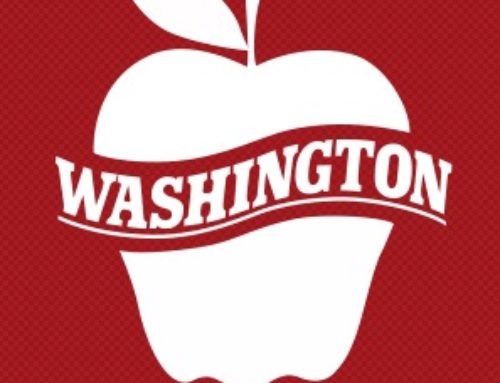


Leave A Comment